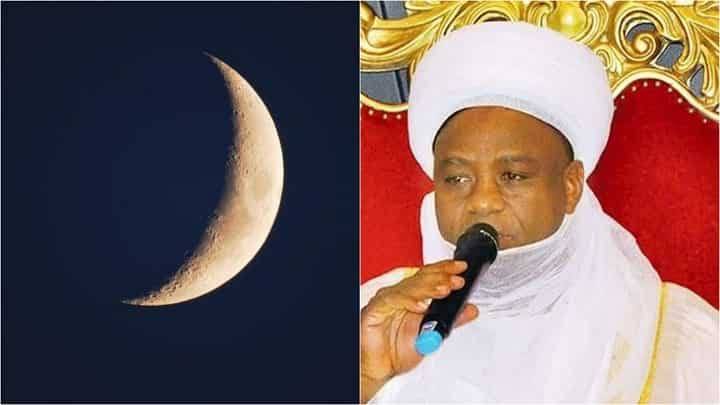Sultan Of Sokoto Announces Possible One-Day Extension Of Ramadan Fasting, See Details
The Nigerian Supreme Council for Islamic Affairs (NSCIA), under the leadership of the Sultan of Sokoto, Alhaji Muhammad Sa’ad Abubakar, has announced that Ramadan fasting may continue for an additional day. This decision was made due to the fact that the moon, which marks the end of the month of Ramadan, has not been sighted in Nigeria.
In a statement signed by the Secretary-General of the NSCIA, Prof. Is-haq Oloyede, the Council enjoined Muslims to search for the crescent of Shawwal on the 29th of Ramadan. If the crescent is sighted, then Sunday, March 30, 2025, will be declared as the 1st of Shawwal and the day of Idul Fitr.
The sighting of the moon is a significant event in the Islamic calendar, as it marks the beginning of a new month. In the case of Ramadan, the sighting of the moon signals the end of the fasting period and the beginning of the Eid al-Fitr celebrations.
In a related development, Saudi Arabia announced on Saturday that the crescent of Shawwal had been sighted, and therefore, Eid al-Fitr will be celebrated on Sunday, March 30, 2025. This announcement was made on Haramin’s official Facebook page, an official platform for the Muslim community worldwide.
The announcement by the Sultan of Sokoto means that Nigerian Muslims may have to fast for an additional day, pending the sighting of the moon. This decision may have significant implications for Muslims in Nigeria, particularly those who have already made preparations for the Eid al-Fitr celebrations.
The NSCIA has appealed to Muslims in Nigeria to unite and cooperate in the search for the crescent of Shawwal. This appeal is significant, as it highlights the importance of unity and cooperation among Muslims in Nigeria.
The Sultan also maintained that in the event that the moon is not sighted, then Monday, March 31st, 2025, becomes Eid al-Fitr. He also urged all Muslims to pray fervently to Allah during the conclusion of the month of Ramadan for peace, security and development in Nigeria.
The Nigerian Supreme Council for Islamic Affairs (NSCIA) is the highest Islamic body in Nigeria, and its announcements are usually binding on all Muslims in the country. The Council is responsible for coordinating Islamic activities in Nigeria, including the sighting of the moon.
The sighting of the moon is a critical aspect of the Islamic calendar, and it is usually done by a committee of Muslim scholars and astronomers. The committee uses a combination of astronomical calculations and physical sightings to determine the start of a new month.
In Nigeria, the sighting of the moon is usually done by the National Moon Sighting Committee (NMSC), which is responsible for coordinating the sighting of the moon across the country. The Committee is made up of Muslim scholars, astronomers, and other stakeholders.
The announcement by the Sultan of Sokoto is a significant development in the Islamic calendar, particularly for Muslims in Nigeria. As Muslims in Nigeria await the sighting of the moon, they are reminded of the importance of unity, cooperation, and obedience to the teachings of Islam.
The Eid al-Fitr celebrations are an important aspect of the Islamic calendar, and they mark the end of the Ramadan fasting period. The celebrations are usually characterized by prayers, feasting, and gift-giving.
In Nigeria, the Eid al-Fitr celebrations are usually marked with great fanfare, with Muslims across the country gathering for prayers and celebrations. The celebrations are usually attended by top government officials, including the President and state governors.
The Eid al-Fitr celebrations are also an opportunity for Muslims to come together and strengthen their bonds of unity and solidarity. The celebrations are usually marked by acts of charity and kindness, with Muslims donating to the poor and needy.
In conclusion, the announcement by the Sultan of Sokoto is a significant development in the Islamic calendar, particularly for Muslims in Nigeria. As Muslims in Nigeria await the sighting of the moon, they are reminded of the importance of unity, cooperation, and obedience to the teachings of Islam.
To ensure a smooth and peaceful Eid al-Fitr celebration, stakeholders could consider the following recommendations:
-Promote unity and cooperation: Muslims in Nigeria should unite and cooperate in the search for the crescent of Shawwal.
-Encourage obedience to Islamic teachings: Muslims in Nigeria should be encouraged to obey the teachings of Islam, particularly with regards to the sighting of the moon.
- Provide clear guidance and information: The NSCIA and other Islamic authorities should provide clear guidance and information to Muslims in Nigeria on the sighting of the moon and the celebration of Eid al-Fitr.
- Encourage acts of charity and kindness*: Muslims in Nigeria should be encouraged to perform acts of charity and kindness during the Eid al-Fitr celebrations.
- Promote peaceful coexistence: Muslims and non-Muslims in Nigeria should be encouraged to promote peace among themselves.



No comments yet
Be the first to share your thoughts!